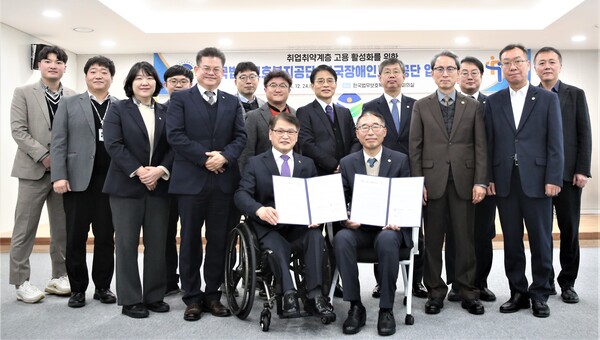“Where should they go after high school graduation?”
For parents of children with developmental disabilities, high school graduation brings both joy and worry. ▲Staying in a special school’s vocational program to prepare for employment, ▲Enrolling in a regular university or alternative college, ▲Utilizing a vocational training center—options are diverse, but reality is far from easy. Even after entering university, many take leave or drop out due to difficulties with interpersonal relationships or academic adjustment. Experts advise, “Rather than focusing solely on university enrollment, we must consider sustainable paths to independence together.”
(…)
◇Diverse Pathways: Social Enterprises, Vocational Training Centers
Individuals with developmental disabilities accompanied by intellectual disabilities may spend their adult years at welfare centers or sheltered workshops (vocational rehabilitation facilities). Recently, more are utilizing employment preparation programs from the Korea Employment Agency for the Disabled or securing jobs at social enterprises. Field professionals explain, “Working at a social enterprise requires not only the will to work but also basic daily living skills like using public transportation, fine motor skills, and emotional regulation.”
Utilizing vocational training facilities is also a good approach. Lee Dae-ho, Director of the Vocational Talent Development Center, stated, “While non-disabled vocational training centers focus on skill-based ‘job training,’ we also provide the preceding step of ‘vocational adaptation training.’” He emphasized, “It’s crucial not only to explore jobs suited to the individual characteristics of people with disabilities but also, for those with developmental disabilities, to learn basic work habits like work attitude, etiquette, and time management to adapt to workplace culture and colleague relationships.” He emphasized, “Those who receive consistent training demonstrate higher job retention rates and smoother adaptation to workplace relationships. Our goal should be ‘job retention’ rather than mere ‘job placement.’”
Recently, training areas have expanded beyond barista and office assistant roles to include Fourth Industrial Revolution/AI-related jobs like data labeling and AI drawing, as well as cultural and artistic fields such as dance and painting.
However, achieving independence remains difficult without improved societal perception. The center director stated, “Adaptation itself is a major challenge for people with developmental disabilities, but they struggle to endure when viewed solely through a corporate lens focused on productivity,” adding, “True independence is only possible with parallel policy support and social understanding.”
*Please note this is a Korean article
Source: Health Chosun

![You are currently viewing “Where to go after graduation?” Career concerns for students with developmental disabilities, expert advice from [A Slightly Slower World]](https://knda.ne.kr/wp-content/uploads/2025/10/2025102301990_0-1.jpg)
![Read more about the article [True Story] Richard Branson, the dyslexic, middle-school-educated CEO of 350 companies](https://knda.ne.kr/wp-content/uploads/2024/03/20180410154604462051-1.jpg)

